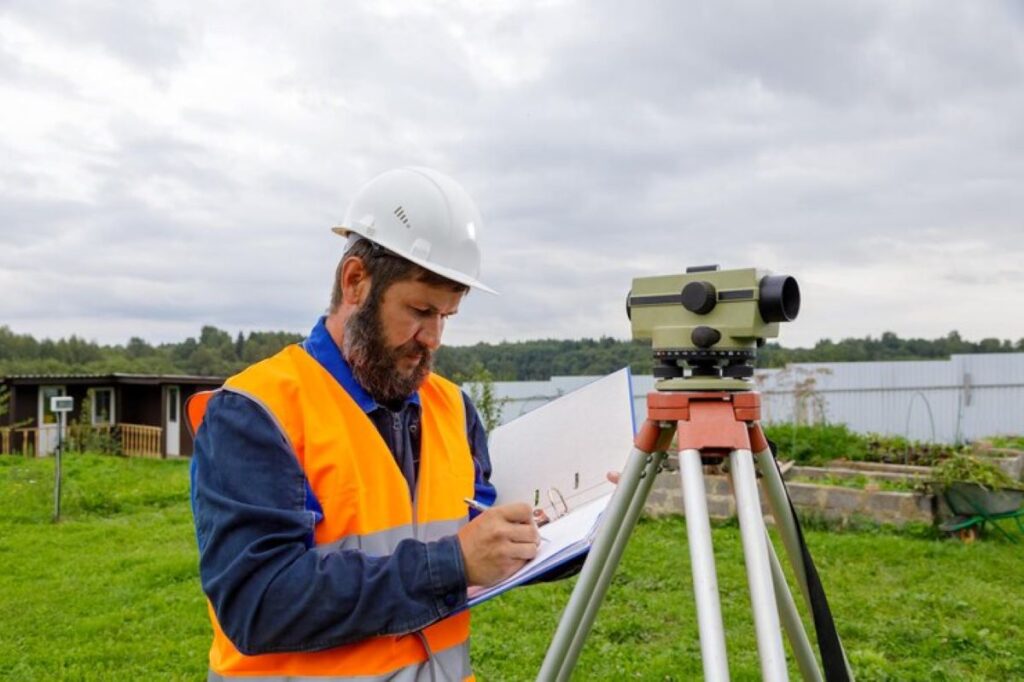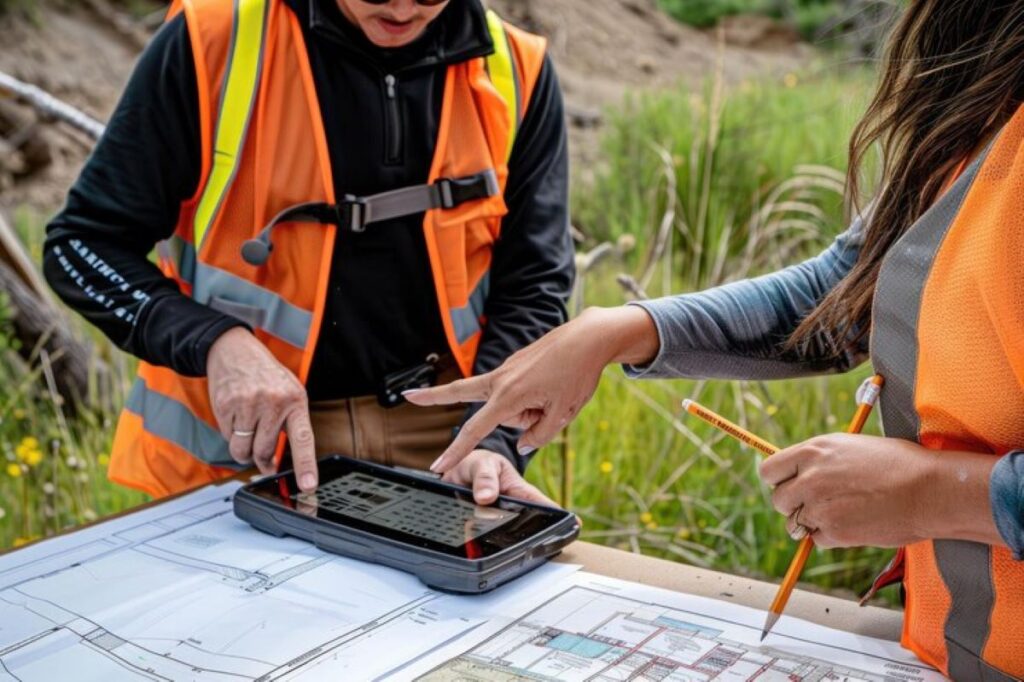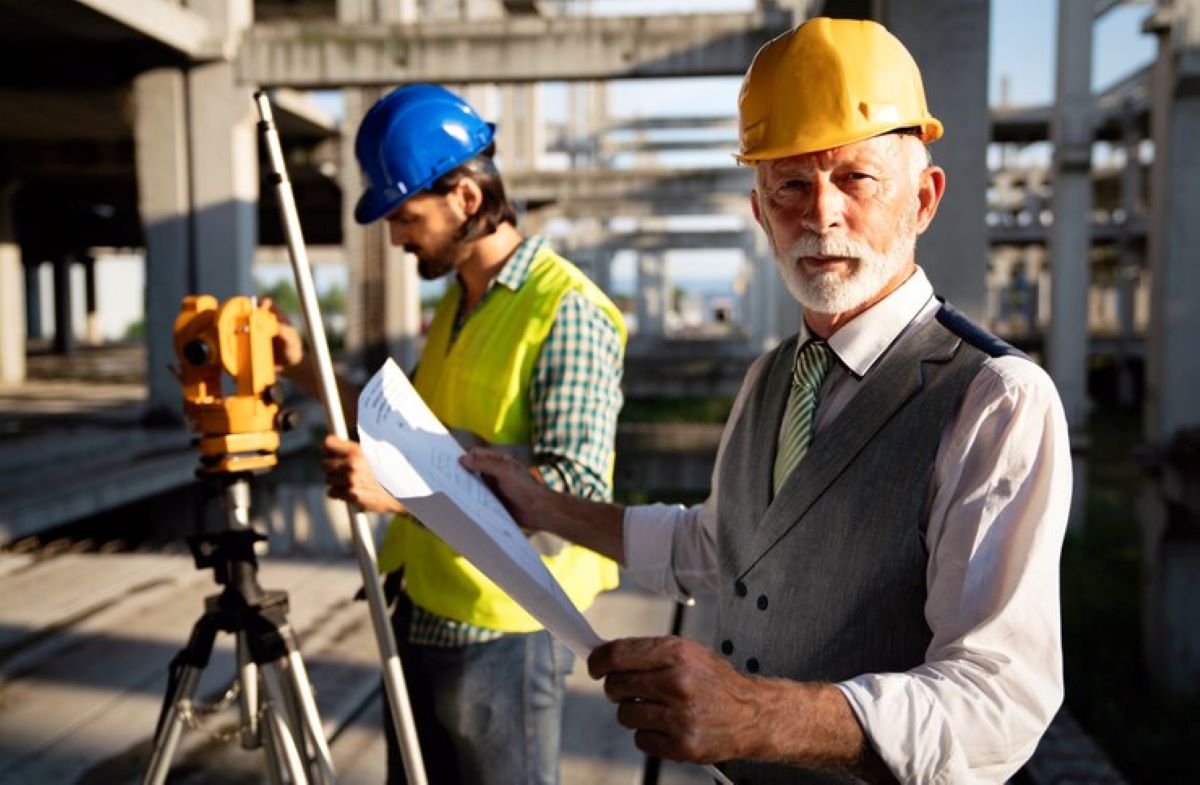In the field of construction, precision and accuracy are paramount. Often, the success of a project hinges on effective planning, where every detail is meticulously accounted for. Expert surveying solutions play a vital role in achieving these objectives, ensuring that construction projects not only meet the required standards but also stay within budget and are completed on time.
Understanding the role of surveying in construction
Surveying is fundamentally concerned with measuring and mapping land and features on the Earth’s surface. Its applications within the construction industry are vast and crucial to the overall success of a project.
The importance of accurate measurements
Accurate measurements are the bedrock of any construction project. Every building, road, and bridge requires precise dimensions to ensure structural integrity. A minor error in measurement can lead to significant problems down the line, including safety hazards and increased costs for rectification. This is why skilled construction surveyors utilise specialised techniques and knowledge to deliver incredibly precise measurements, laying a solid foundation for construction work.
In addition to accuracy, surveying ensures that all site boundaries are clearly defined, which is vital for avoiding disputes with neighbouring properties. Furthermore, during the initial phases of construction, surveyors help outline the land contours, ensuring that designs are aligned with the natural landscape. The role of technology in this process cannot be overstated; modern surveying employs advanced tools such as GPS and laser scanning, which enhance precision and efficiency. These technologies allow construction surveyors to gather data rapidly and accurately, providing a comprehensive view of the site that can be invaluable for architects and engineers alike.
How surveying contributes to project planning
Effective project planning is greatly enhanced by comprehensive surveying. From the outset, surveyors engage in detailed site assessments that inform the broader planning process. This includes evaluating the lay of the land, identifying any regulatory requirements, and determining the impact of environmental factors.
Moreover, surveying can reveal potential challenges, such as difficult terrains or existing structures, allowing project planners to devise strategies that mitigate risks and optimise workflows. As a result, surveying not only influences the design and planning stages but also significantly shapes the project’s overall feasibility. The insights gained from surveying can lead to innovative design solutions, such as incorporating natural features into the project or adapting plans to minimise environmental disruption. Additionally, surveyors often collaborate with other professionals, including environmental scientists and urban planners, to ensure that all aspects of a project are considered, fostering a more integrated approach to construction that can yield sustainable outcomes.
The expertise of professional surveyors
Professional surveyors are equipped with the necessary skills and experience to carry out effective surveying. They undergo extensive training in various aspects of land surveying, which arms them with the expertise required to navigate the complexities of each construction project.
The skills and knowledge of a surveyor
Surveyors adeptly combine technical knowledge with problem-solving skills. They are trained to assess diverse terrains and environments, knowing precisely how to adapt their techniques based on the unique requirements of each site. This includes a deep understanding of property laws, regulations, and standards that govern the construction industry.
Additionally, surveyors must be proficient in mathematics and physics, as these disciplines are foundational to their work. Their expertise allows them to accurately interpret data and translate it into actionable insights that can be utilised throughout the construction process. Furthermore, communication skills are paramount; surveyors often collaborate with architects, engineers, and construction teams to ensure that everyone is aligned on project goals and specifications. This collaboration often extends to liaising with local authorities to secure the necessary permits and approvals, showcasing the surveyor’s role as a vital link in the construction chain.

The tools and technology used by surveyors
Modern surveying relies heavily on advanced technology coupled with traditional methodologies. Surveyors wield a variety of tools, ranging from basic measuring devices to sophisticated software and equipment.
- Theodolites: Used for measuring angles in horizontal and vertical planes.
- GPS Systems: Empower surveyors with precise geographic positioning.
- 3D Laser Scanners: Capture detailed site information and create accurate digital representations.
- Surveying Software: Assists in data analysis, mapping, and creating 3D models.
These tools not only streamline the surveying process but also enhance the reliability of the data collected, enabling better planning and execution of construction projects. Moreover, the integration of Geographic Information Systems (GIS) has revolutionised the way surveyors analyse spatial data, allowing them to visualise complex information in a more accessible format. This capability is particularly beneficial for urban planning and environmental assessments, where understanding the interplay between various geographical factors is crucial. As technology continues to evolve, surveyors are also embracing innovations such as drones for aerial surveying, which provide a bird’s-eye view of large areas, significantly reducing the time and effort required for traditional ground surveys.
The impact of surveying on construction project outcomes
The significance of surveying extends beyond the initial stages of a construction project. It continues to influence various outcomes throughout the build process, ensuring compliance with safety standards and optimisation of resources.
Ensuring safety and compliance through surveying
Safety within construction sites is non-negotiable. Accurate surveying plays a crucial role in establishing safe working conditions by identifying potential hazards before work commences. This includes evaluating what existing utility lines might pose risks, assessing the stability of the land, and ensuring that all components align with safety regulations.
Furthermore, professional surveyors are responsible for monitoring construction progress and ensuring that deviations from the original plans are remedied promptly, maintaining compliance with industry standards. This vigilant oversight not only promotes safety but also alleviates potential legal ramifications that may arise from negligence. In addition to these responsibilities, surveyors often collaborate with engineers and architects to provide insights that can lead to innovative design solutions, thereby enhancing the overall safety and functionality of the project. Their expertise in topography and land use can also inform decisions about the best materials and construction methods to employ, further mitigating risks associated with structural integrity.
How surveying can save time and money
Investing in expert surveying solutions can markedly save both time and money throughout the construction process. By identifying issues early in the planning stage, surveyors help avert costly delays and changes during construction.
Moreover, precision in surveying reduces waste, as fewer materials are unnecessarily ordered, and resources can be utilised more efficiently. When time and money are conserved through effective surveying, stakeholders can often reallocate these savings towards further project enhancements or future investments. Additionally, the integration of advanced surveying technologies, such as 3D laser scanning and drone surveys, has revolutionised the efficiency of data collection and analysis. These modern tools not only expedite the surveying process but also enhance accuracy, allowing for real-time adjustments that can significantly streamline workflows. The ability to visualise potential challenges before they arise empowers project managers to make informed decisions, ultimately leading to smoother operations and a more successful project outcome.
Choosing the right surveying solution for your project
The selection of an appropriate surveying solution can make a significant difference in the execution and outcome of a construction project. With various surveying firms and solutions available, it’s crucial to choose wisely. Visit https://gravitronixgame.com/how-construction-surveying-helps-prevent-costly-errors/ to get about how construction surveying helps costly errors.
Factors to consider when hiring a surveyor
When seeking to engage a surveying professional, several factors should be considered to ensure optimal outcomes. Firstly, look for qualifications and certifications that demonstrate expertise in the field. A reputable surveyor should possess credentials from relevant professional bodies, proving their commitment to industry standards.
Furthermore, consider their experience with similar projects. A surveyor with a proven track record in your project’s specific type will likely navigate challenges more effectively, yielding better results. Testimonials and references can provide insights into their previous work, giving you further confidence in your selection.
Additionally, it is wise to assess the technology and tools that the surveyor employs. Modern surveying techniques, such as 3D laser scanning and drone surveying, can significantly enhance the accuracy and efficiency of data collection. A firm that invests in cutting-edge technology not only demonstrates a commitment to precision but also ensures that they can deliver comprehensive analyses that traditional methods may overlook.

The benefits of using a professional surveying service
Engaging a professional surveying service delivers numerous advantages. Beyond the accuracy and reliability of measurements, it offers peace of mind knowing that trained experts are overseeing a crucial aspect of your project.
Professional surveyors are also up-to-date on the latest regulations, technologies, and methodologies, enabling them to implement best practices efficiently. This expertise translates into a smoother construction process, minimising the risk of project delays and budget overruns.
Moreover, professional surveyors often provide additional services such as risk assessments and feasibility studies, which can be invaluable during the planning stages of a project. By identifying potential issues early on, these experts can help stakeholders make informed decisions, ultimately saving time and resources. Their comprehensive approach not only enhances the quality of the surveying process but also contributes to the overall success of the construction project.


